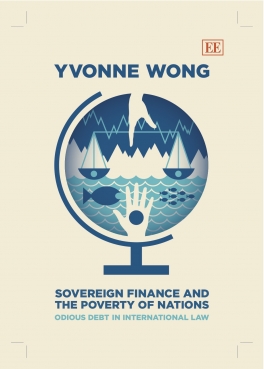Restructuring Responsibility for Sovereign Debt: A Proposal For Reform

By Yvonne Wong, UNSW
Debt in itself is not typically regarded as evil. Rather, it can be quite helpful – enabling you to delay repayment for luxuries enjoyed today, or to bring to life a business plan that otherwise you would not be fiscally capable of. But should you over-borrow and delay on repayments, then debt can quickly turn ugly – especially if your loan incorporates an interest component. Where debt obligations become too burdensome, you can seek relief, if you are an individual or corporation, through bankruptcy and insolvency regimes. But sovereigns that borrow are in a different position. In the sovereign debt context, the doctrine of pacta sunt servanda (pacts must be respected) reigns supreme. Other than this general rule, there are no other laws nor formal rules in dealing with sovereign debt or consequential defaults. What this means is that sovereigns who over-borrow have no recourse to bankruptcy or insolvency regimes by force of law. Rather, the existing system mandates that all sovereign debts are enforceable in perpetuity – from government to government, generation to generation, without regard to factors such as a nation’s ability to repay, fairness, or other non-economic considerations.
Where a country spends more than it earns, it must either seek debt relief from its creditors, or enter into new loans to pay outstanding debt. The law does not provide relief. Many poor countries in Africa, Latin America, and Asia have spent recent decades servicing debt, and continue to do so. They are caught in a perpetual debt cycle. Countries in the Eurozone such as Greece are entering a similar cycle.
The issue of public debt cannot be separated from that of poverty reduction and human development since it forces a government to spend more on debt service than on serving its people.
Yet countries themselves do not acquire debt: the leaders that run them do. And where there is blatant irresponsibility on the part of the borrower and the lender in a sovereign debt arrangement to the detriment of the sovereign debtor’s citizens, universal precepts of justice and morality suggest that the strict rule of pacta sunt servanda should be modified so that innocent citizens of future generations are not unfairly saddled with repressive debt. Given that much of the existing debt stock of developing countries was lent during the 1960s and 1970s to unsavory regimes, or corrupt leaders, or for projects which did nothing to benefit ordinary people and which, in fact, served to increase corruption and improper patronage, it is argued that sovereign debt should not always have to be repaid.
The doctrine of ‘odious debts’ seeks to address these concerns. The doctrine, in essence, purports to deny creditors who lend to borrower governments knowing that borrowed funds will not be used in the interests of the borrowing country’s citizens the ability to seek repayment for such loans. Accordingly the doctrine seeks to inject ethical considerations into the sphere of international finance.
In my forthcoming book Sovereign Finance and the Poverty of Nations I set out a blueprint for elevating the odious debt doctrine into law. The proposal seeks to put in place systems and processes that are geared towards a clearer understanding of sovereigns and how they finance themselves. Unlike earlier scholarship, it focuses less on the nature of the borrowing government, and looks instead to the financier as the primary party to help avert odious debts. It puts in place a liability scheme which incentives a financier to make transparent information that it learns from a sovereign debtor. It purports a public registration system for sovereign contracts, and the imposition of positive duties on financiers who provide loans to sovereign borrowers. Financiers who comply gain greater confidence that their contracts will be upheld should disputes arise down the track. Underlying this proposal is the conviction that, with disclosure of information about public contracts, odious sovereign contracts will be less likely to arise. Therefore the focus is on opening access to information and providing the means and empowerment for the populace themselves to eradicate odious sovereign contracts.
Given the current world financial meltdown, it is envisaged that this new emphasis on transparency and accountability will resonate with any future regime for international financial regulation. Not only will increased transparency be critical to solving the specific problem of odious debt, but it could also establish a new paradigm for world financial markets in the post-meltdown era. In the future, sovereign regulation will be increasingly impotent, so novel systems for financial regulation are expected to dominate. Open declaration and accounting for debt, whether public or private, will help regulate markets organically, and therefore help to prevent future meltdowns. The time to start this process is now.


Add new comment